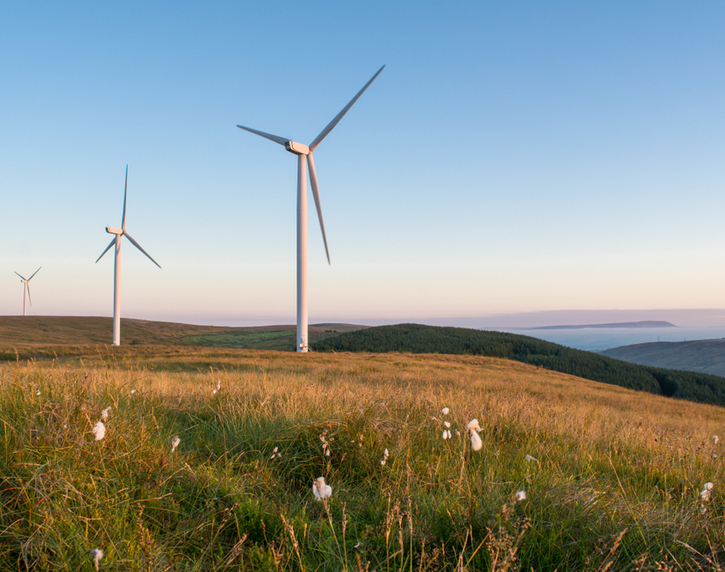Wednesday 4 August 2021
Last month, leaders of the G7 nations gathered in Cornwall for a summit. Unsurprisingly, the pandemic was top of the agenda, but climate change also featured prominently. As countries reaffirm their support for limiting climate change, it could affect businesses and, in turn, investors.
All seven G7 nations – Canada, France, Germany, Italy, Japan, the UK, and the US – reaffirmed their support for reaching net-zero carbon emissions by 2050. This means that equivalent of emitted greenhouse gasses will be either offset or sequestered. It’s a step that aims to balance carbon emissions to reduce the impact of climate change.
The Cornwall summit comes just six months before the UN Climate Change Conference of Parties (COP 26) in Glasgow. COPs bring together almost every country on earth for a climate summit. From 31 October, 190 world leaders, along with tens of thousands of negotiators, government representatives, and businesses will take part in 12 days of talks. During the COP, countries will update their plans for reducing emissions.
At COP 21, hosted in Paris in 2015, every country agreed to work together to limit global warming. This is known as the Paris Agreement. However, the commitments laid out have not come close to reaching the goal. As a result, COP 26 has more urgency than ever. Among the targets of the summit are:
- Accelerating the phase-out of coal
- Curtailing deforestation
- Stepping up the switch to electric vehicles
- Encouraging investment in renewals.
How could this affect your investments?
As governments around the world take action, some companies could find measures designed to limit climate change have a negative effect on them. For example, companies that operate within the coal industry could find their profits start to fall if they aren’t proactive in securing other sources of income as coal is phased out.
Governmental policy can and does have an impact on business profitability. With climate change uniting countries around the world, businesses that fail to consider incoming policy and sentiments may suffer.
It’s not just your investment portfolio that could be affected either. As your pension is usually invested over your working life, climate risks could have an impact on your retirement savings. It’s a challenge that The Pensions Regulator has recently drawn attention to. The organisation called on pension trustees to act now to protect savers from climate risk.
David Fairs, The Pensions Regulator’s executive director of regulatory policy, analysis and advice, said: “Driving trustee action on the risk and opportunities from climate change will create better outcomes in later life for workplace savers.”
He continued that pension schemes need to devote more time to integrating the consideration of climate change right across the decision-making process.
So, how do you reflect climate risks in your portfolio?
Understanding which businesses pose a climate risk can be time-consuming and complex. Multinational companies are complicated and while one area of the business poses a climate risk, others may not. The good news is that more institutions are publicising their investment decisions around climate risks, making it easier for you to invest in a way that reflects climate concerns.
Some investment funds already have clear climate policies and may restrict what companies they invest in, or actively seek to invest in firms that are taking positive action.
As climate action continues, there will likely be more funds that consider climate risk in some way, providing investors with more choice. Likewise, companies will seek to reduce their impact on climate change if it could harm their profits and operations. So, while considering climate risk may seem like a relatively new concept now, it could become one that’s commonplace as the COP goals draw nearer.
Action on climate change presents opportunities too
As well as climate risk, governments taking more action presents investors with opportunities. For instance, among the targets are encouraging electrical vehicle uptake and investment in renewables. With a focus on developing these areas, they could present an opportunity to climate-conscious investors to support emission goals and make a return.
Of course, there are no guarantees when investing. Investing in green technologies and innovations doesn’t mean you’ll receive returns. You should still take all the usual steps you do when investing, including assessing the risks and how they’ll fit into your overall portfolio.
Considering climate change is just one very small part of ESG (environmental, social, and governance) investing but it could help you manage risks and seek opportunities. If you’d like to discuss how you can incorporate ESG factors into your portfolio, including climate change, please contact us.
Please note: This blog is for general information only and does not constitute advice. The information is aimed at retail clients only.
The value of your investment can go down as well as up and you may not get back the full amount you invested. Past performance is not a reliable indicator of future performance.





